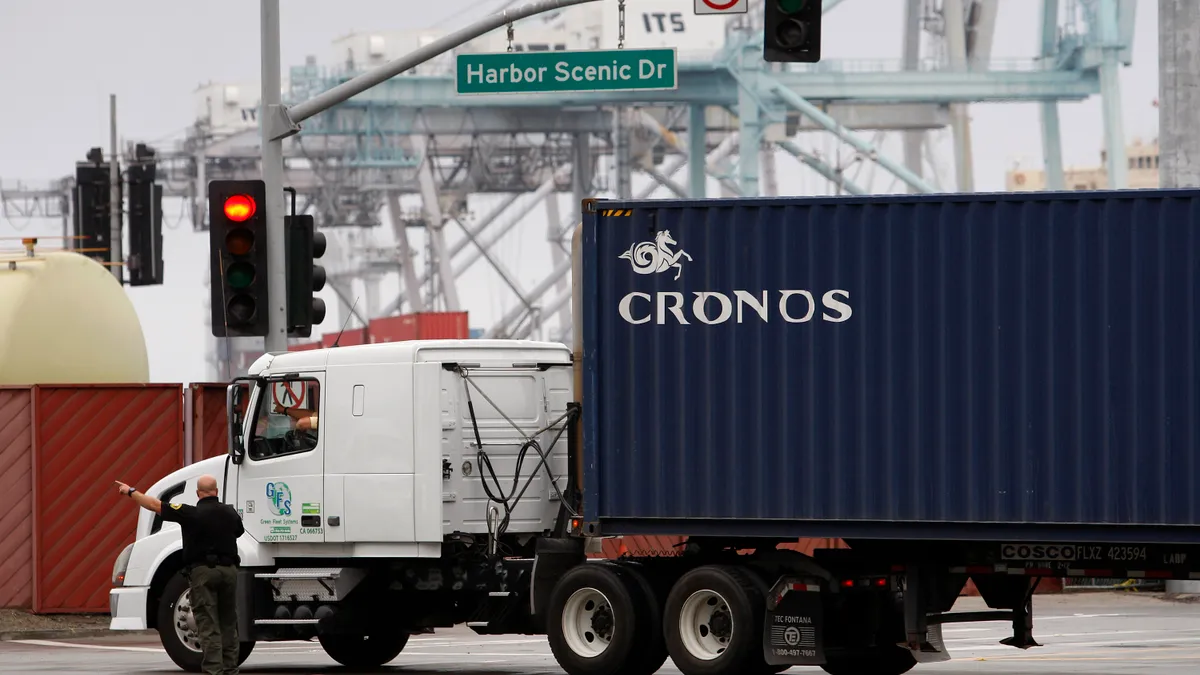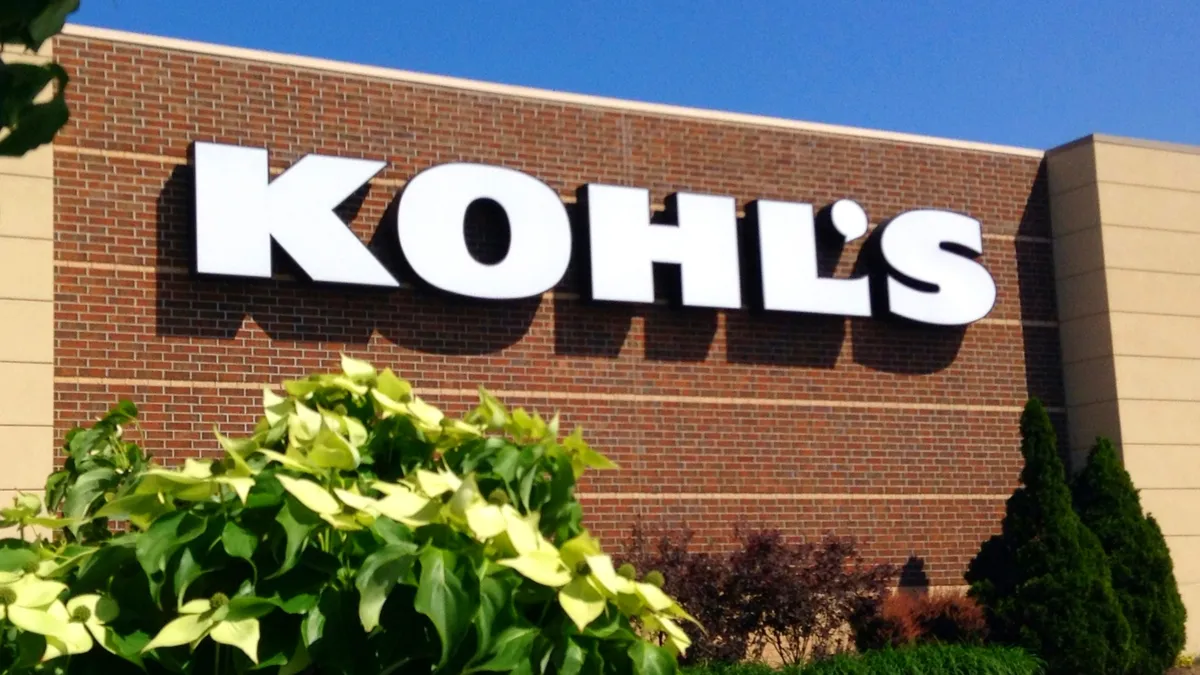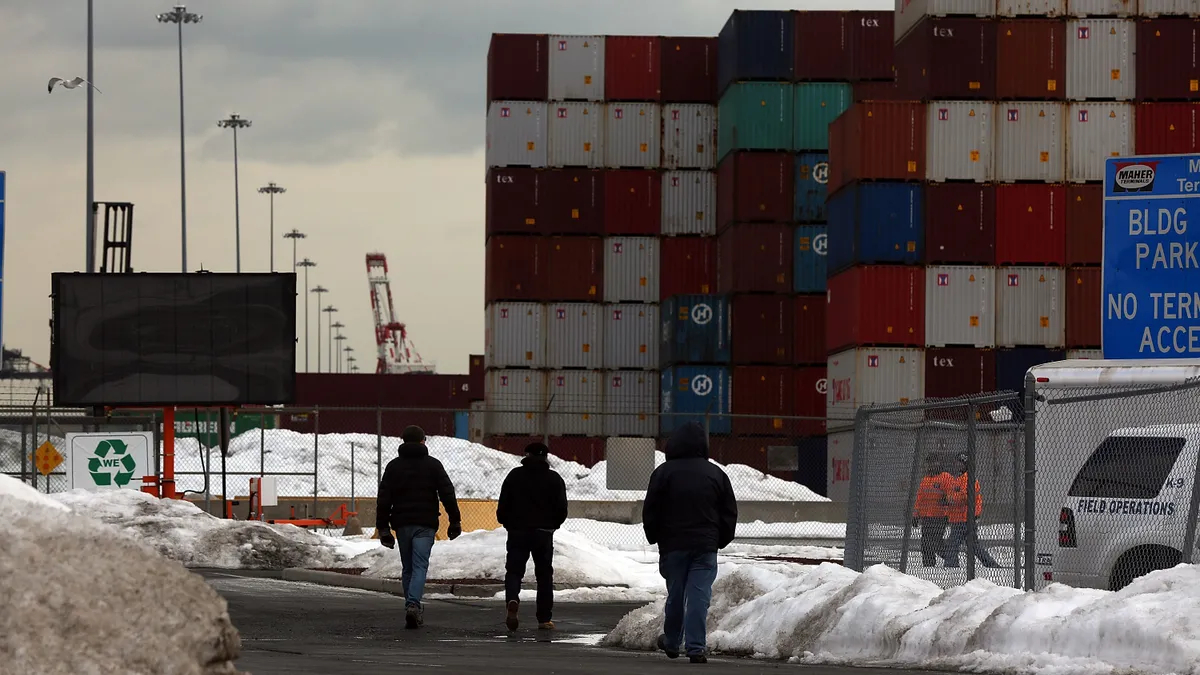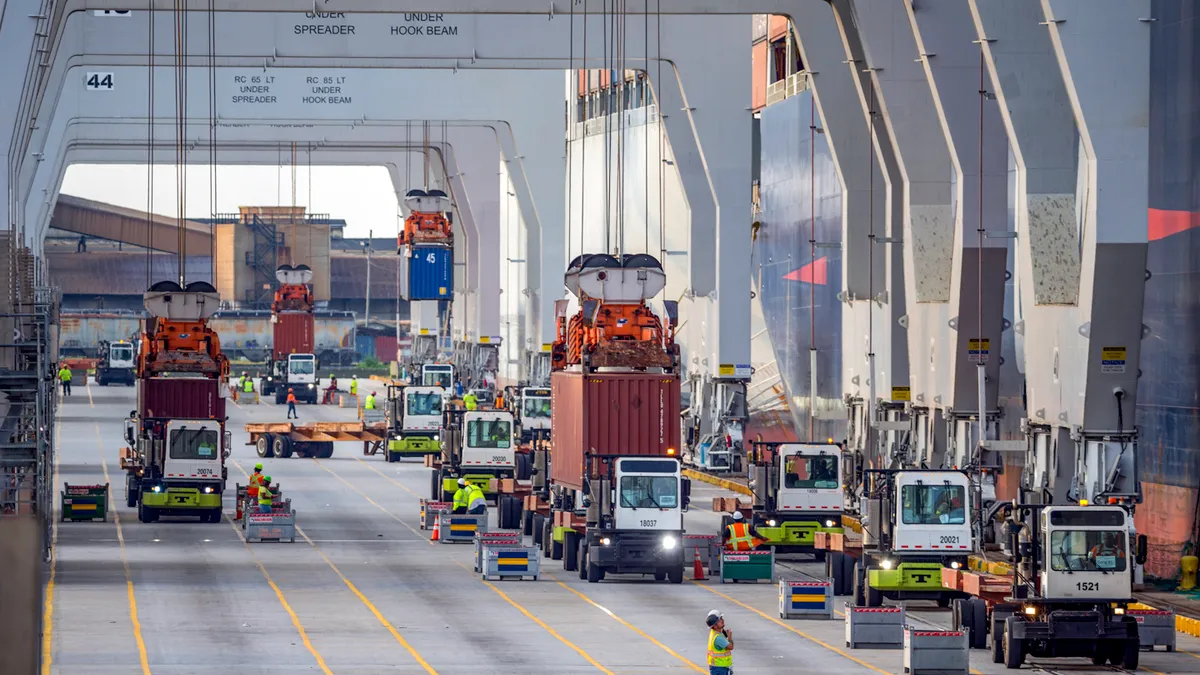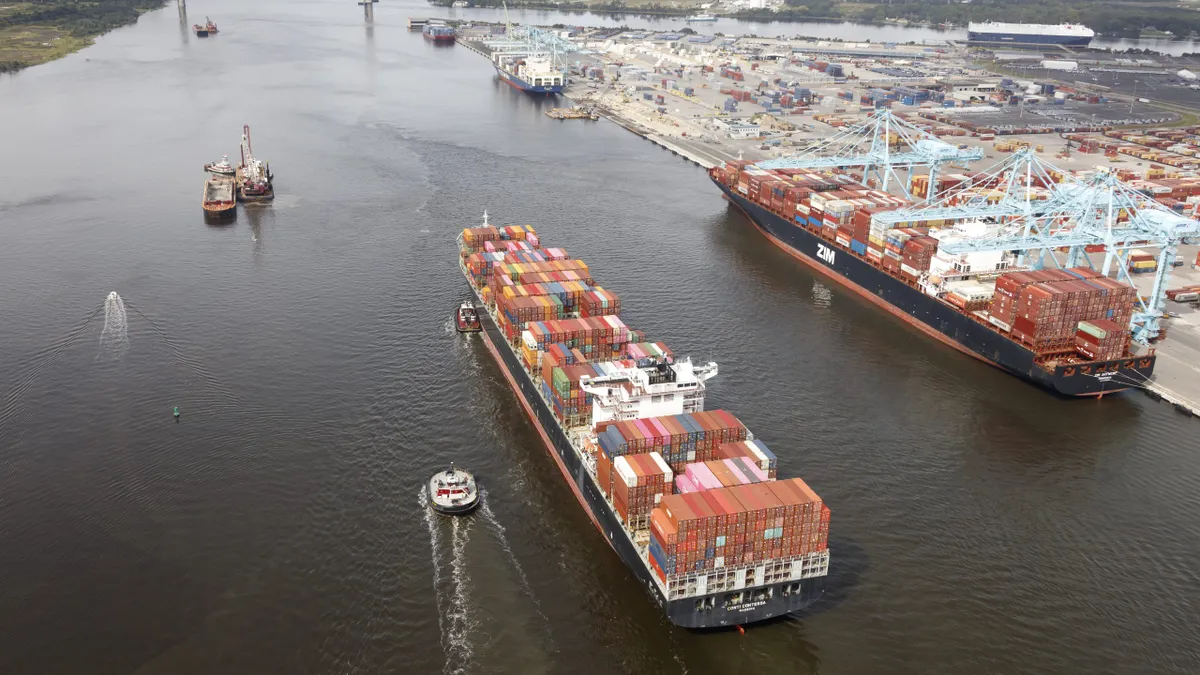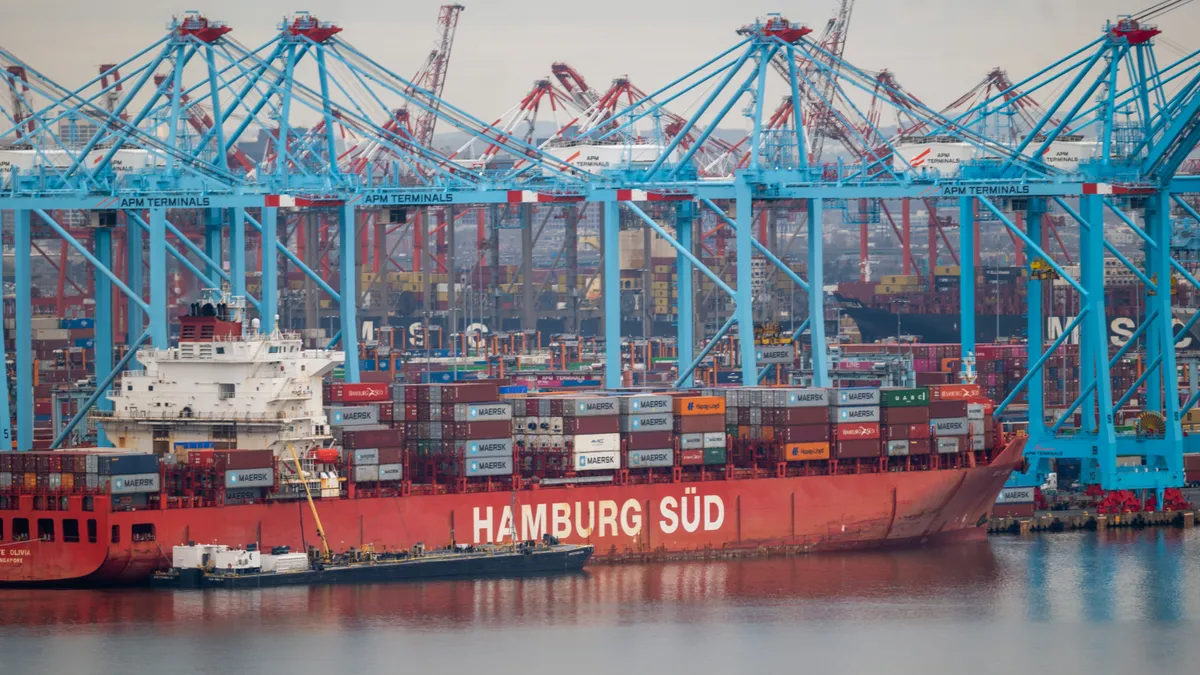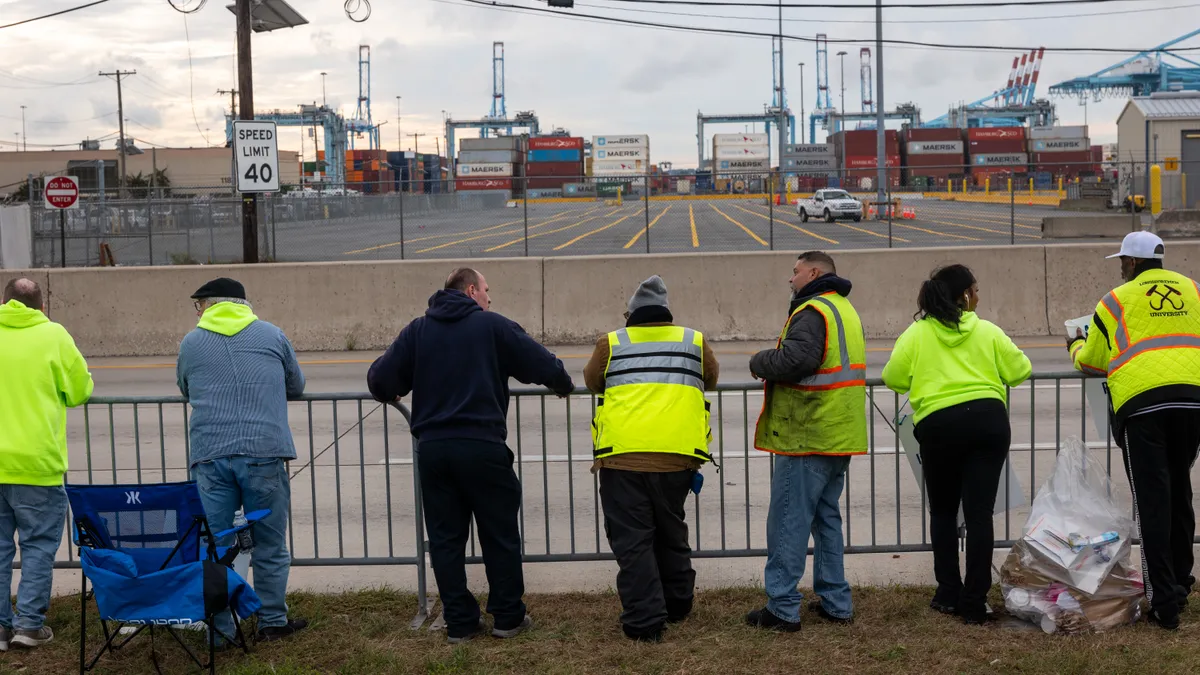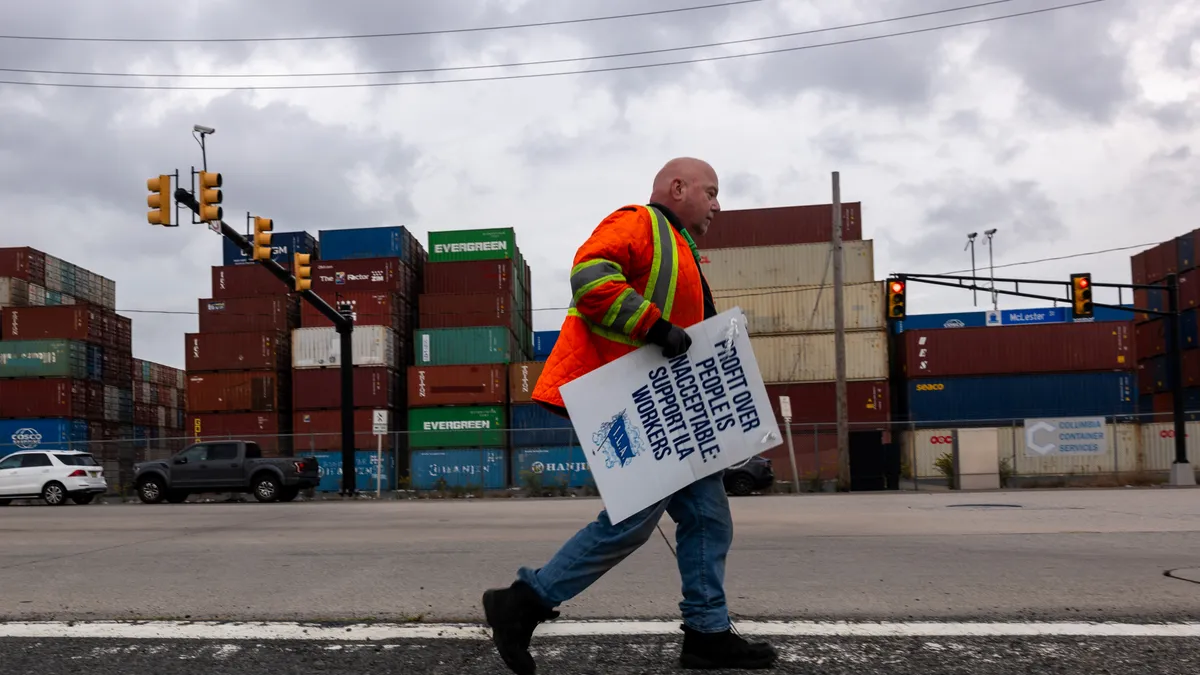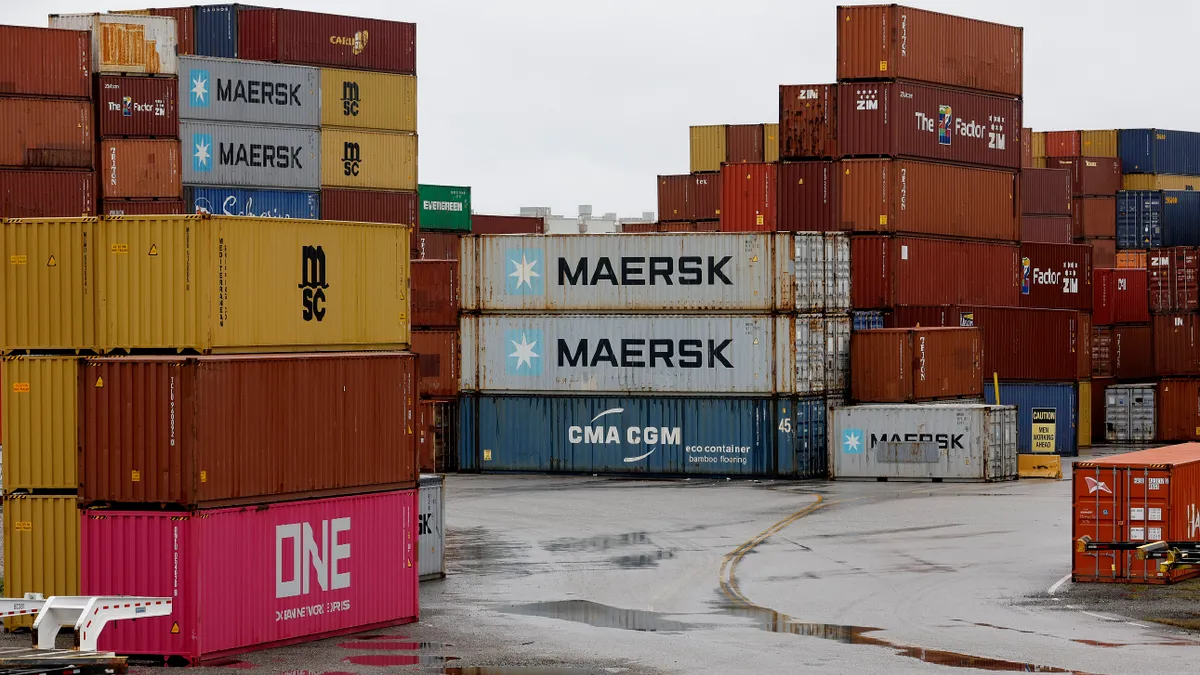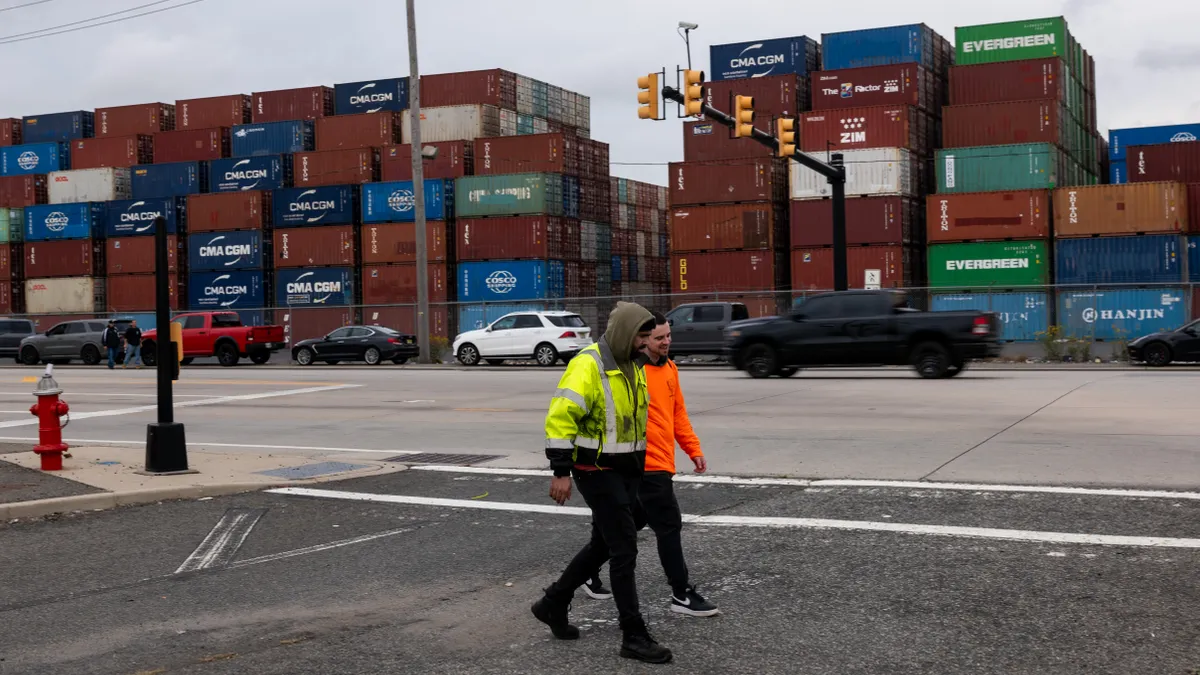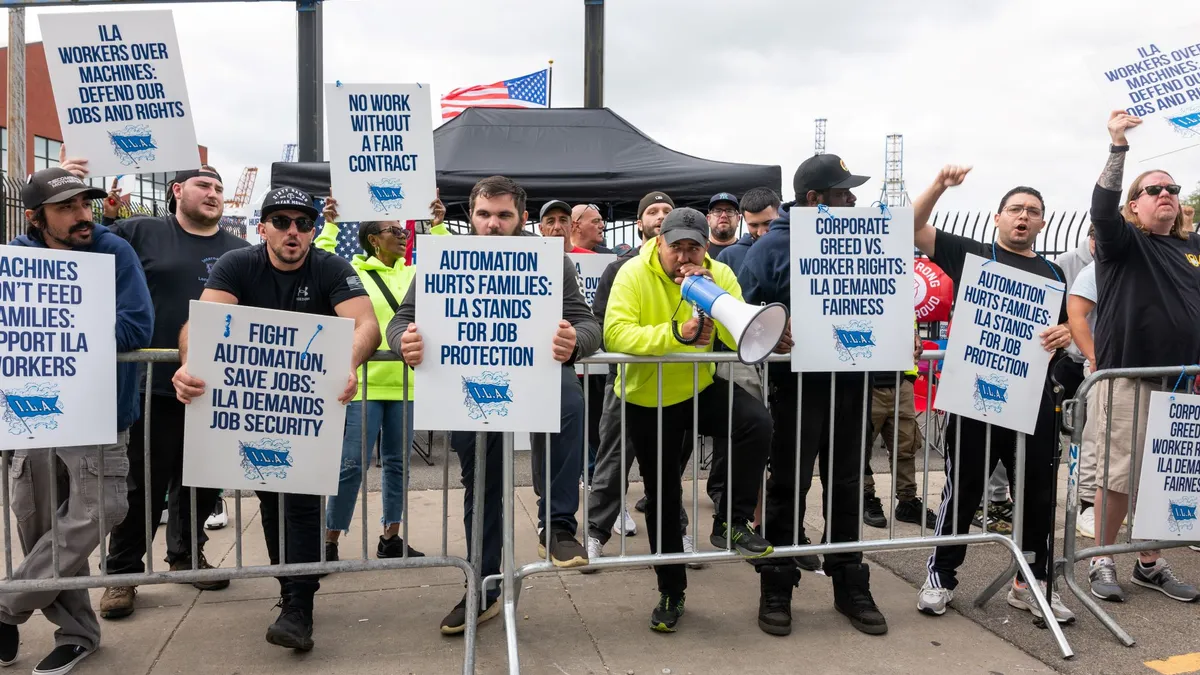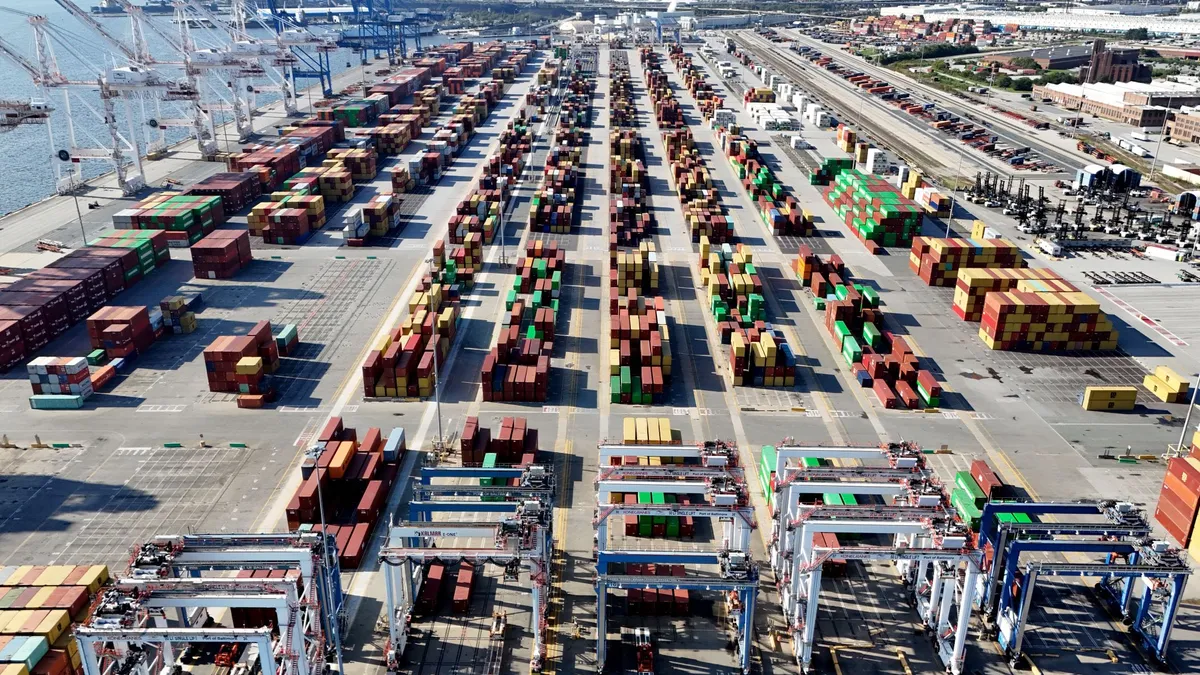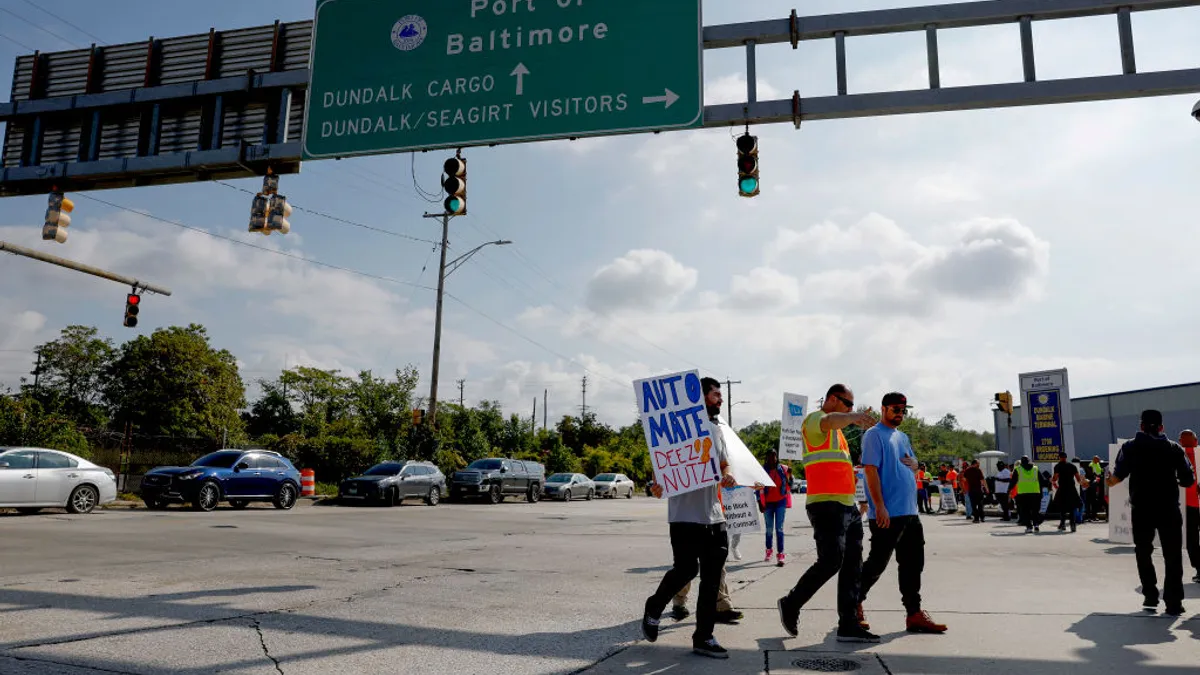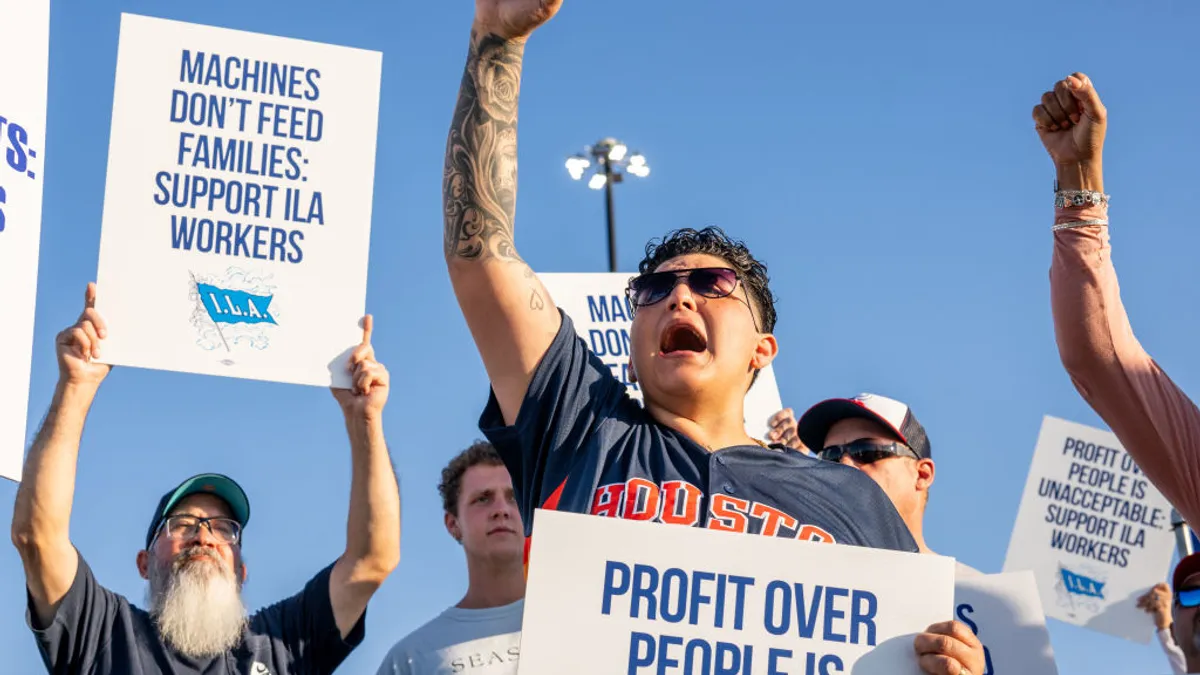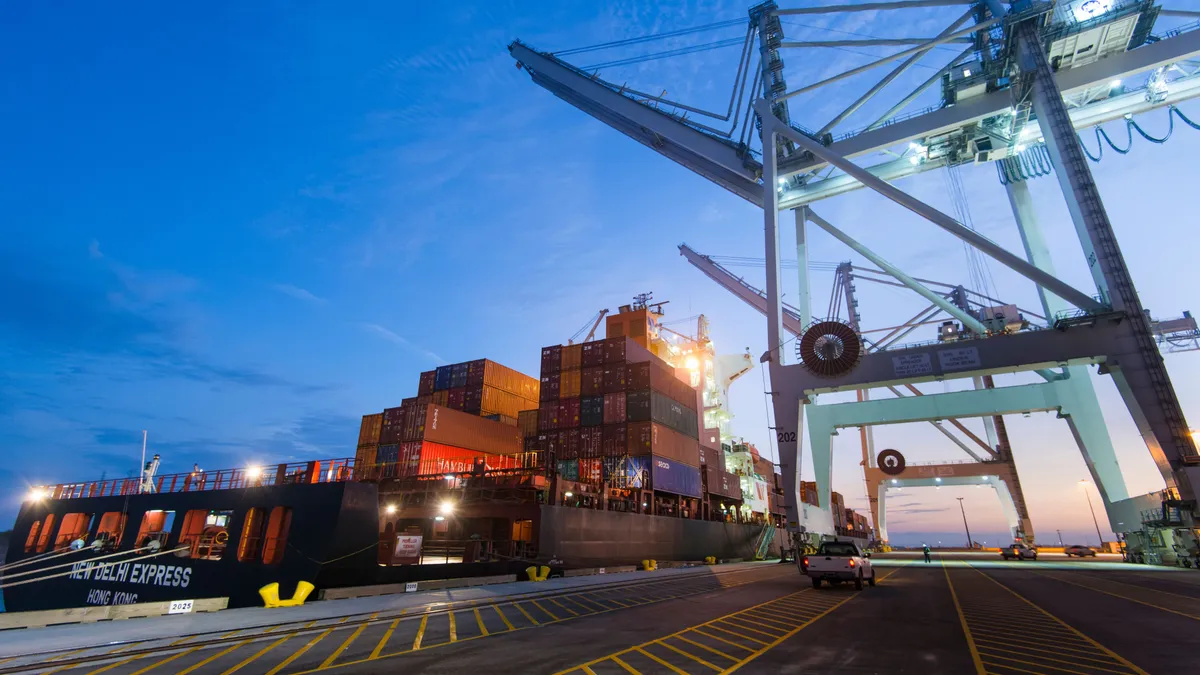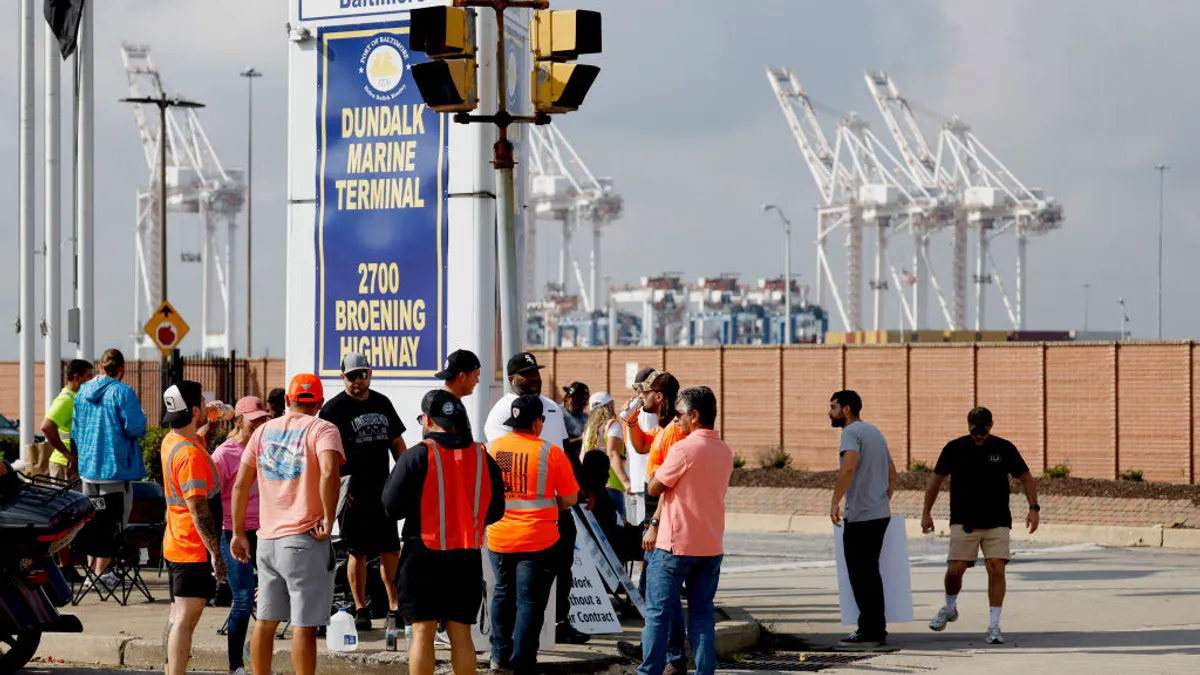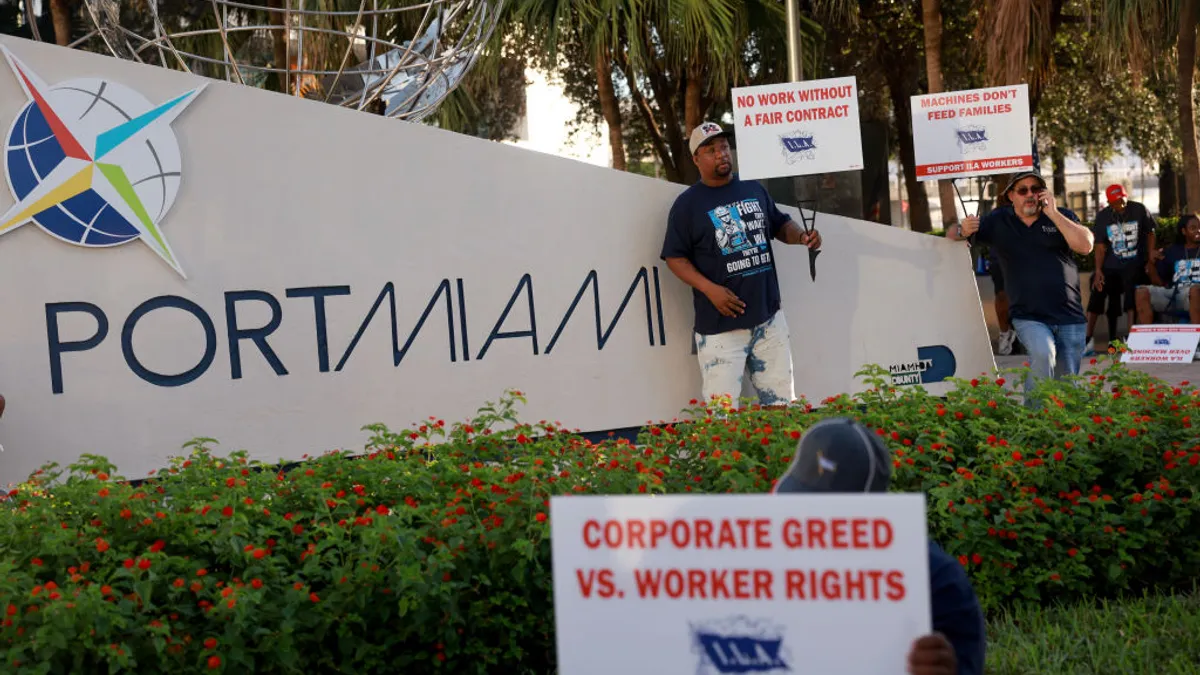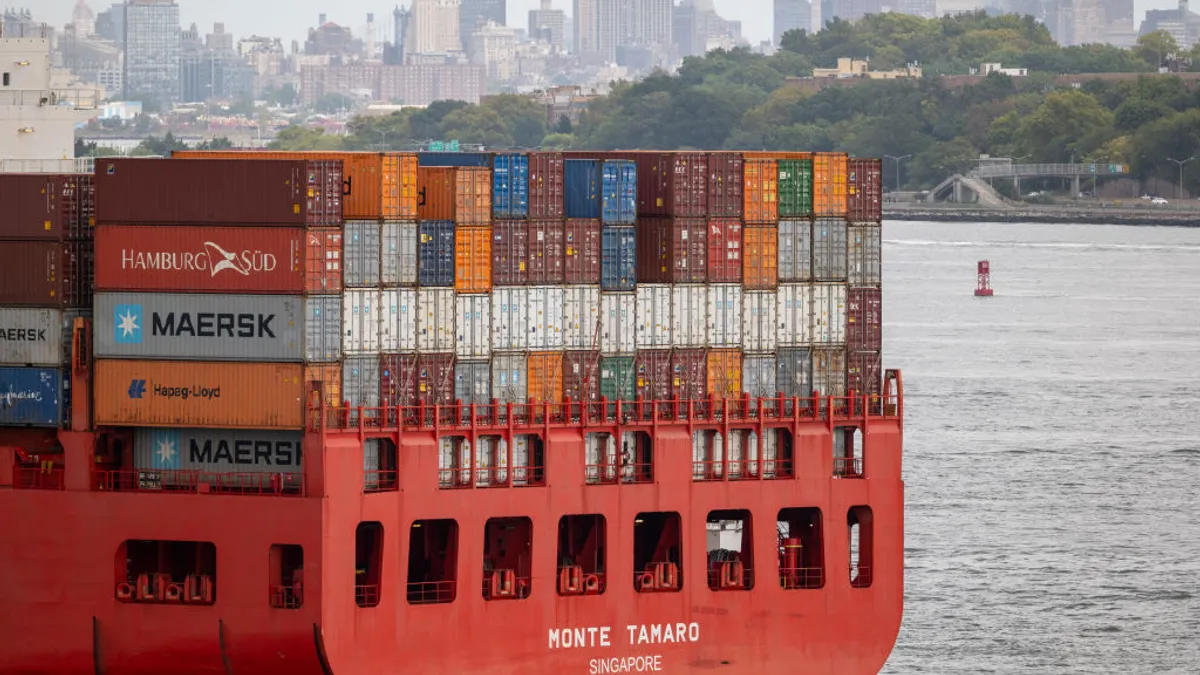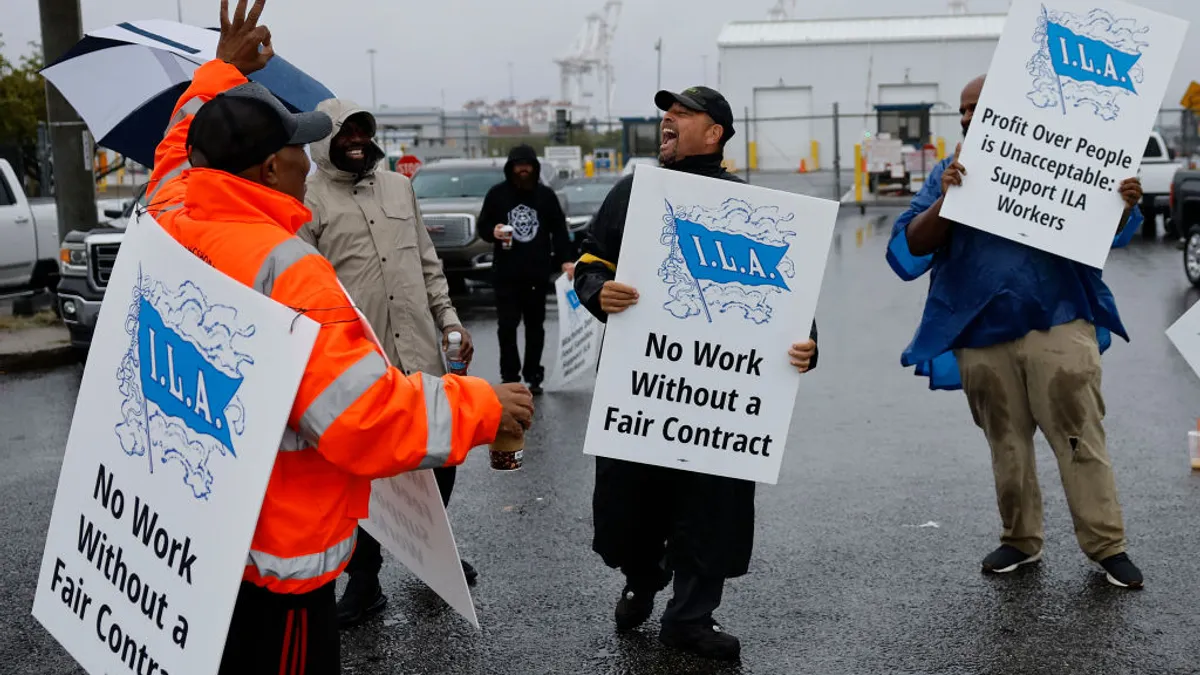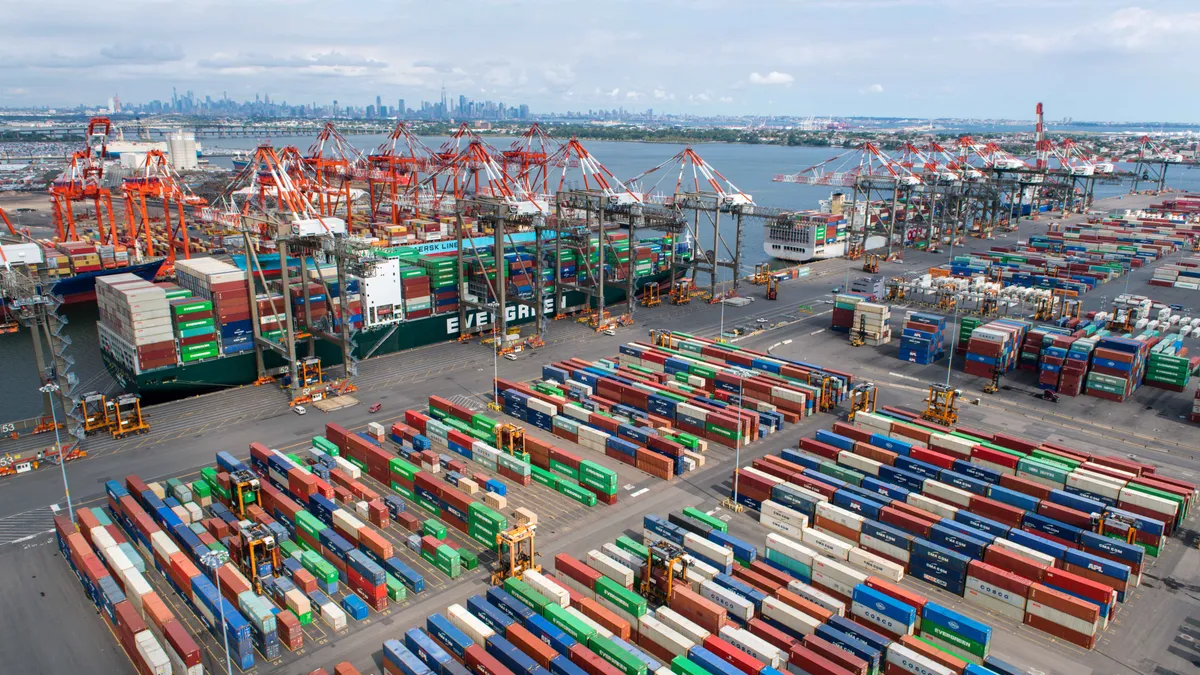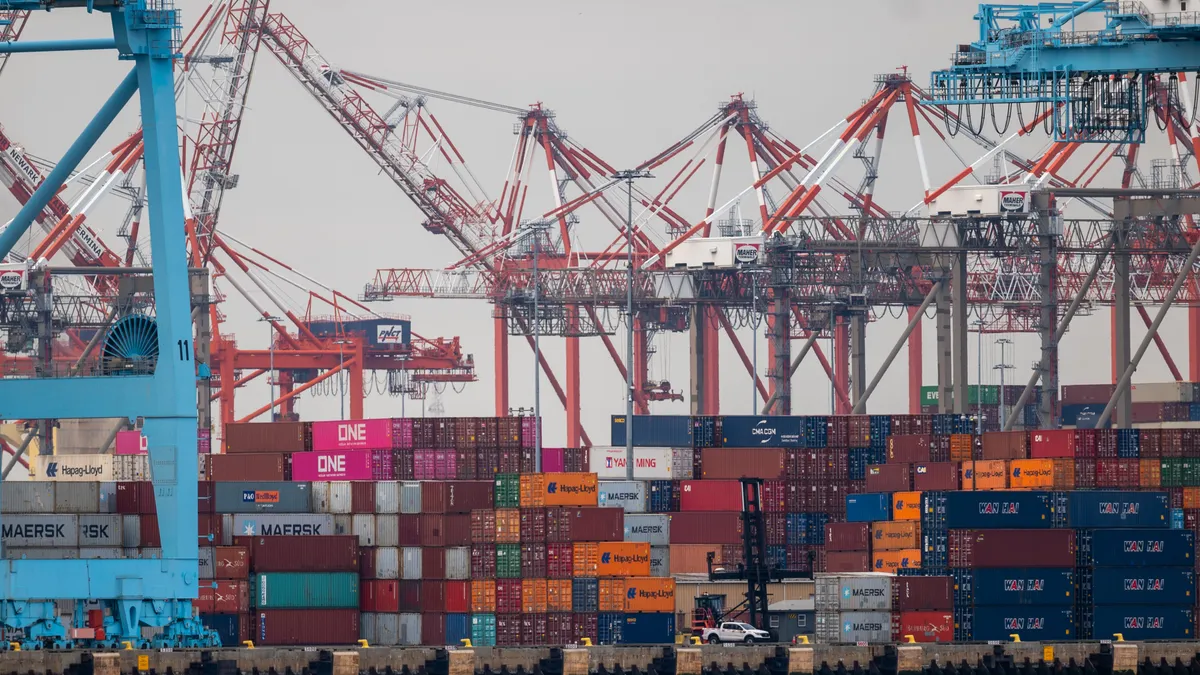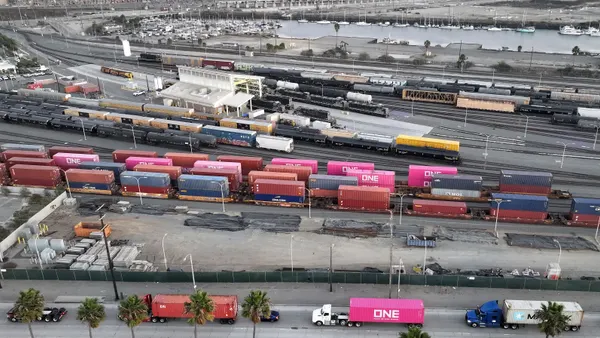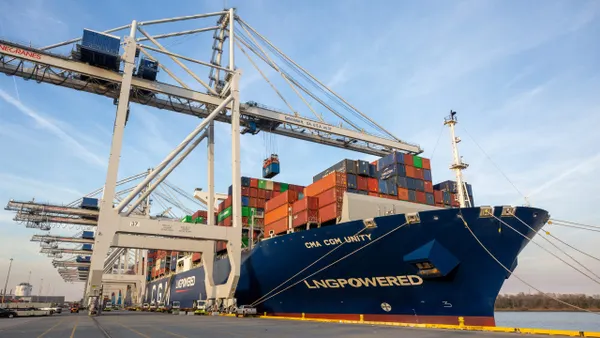Dive Brief:
- The Port of Long Beach is equipped to handle an uptick in cargo if a labor strike at the East and Gulf Coast ports occur, CEO Mario Cordero said in a press conference on Thursday.
- Cordero said lessons learned during the COVID-19 pandemic and data and operations developments have put the San Pedro Bay port complex in “good” position to meet shipper expectations.
- “Our terminal operators are also prepared to flex their gate hours as necessary and our overflow site — our [Short Term Overflow Resource yard] facility at Pier S — is open and has available capacity,” COO Noel Hacegaba said. The STOR facility opened in 2020 to streamline cargo movements during peak season.
Dive Insight:
The Port of Long Beach saw cargo volumes rise 34% in August and is prepared to handle additional capacity if needed, port executives said during a Thursday press conference.
“We are handling just as much cargo as we did in 2021 and 2022 but without any of the backlogs, delays or congestion that characterized the pandemic-induced supply chain crisis,” Hacegaba said at the press conference.
Total cargo volumes processed at the port reached 913,873 total TEUs as retailers moved cargo ahead of tariff increases and potential labor strife at East and Gulf Coast ports.
Negotiations between the International Longshoremen’s Association and the United States Maritime Alliance remain halted as the two sides continue to disagree about port automation as a Sept. 30 contract expiration date nears. The union recently shared a strike mobilization plan with its members during wage scale meetings on Sept. 5, gesturing toward a possible strike.
Cargo volumes by the numbers
The Port of Long Beach’s container terminals are currently at 74% capacity, with container dwell times at four to eight days.
“We’re prepared for the uptick in shipments and continued growth through the rest of the year with a dedicated waterfront workforce, modern infrastructure and plenty of capacity across our terminals,” Cordero said.
Correction: This article was updated to attribute a quote to COO Noel Hacegaba, which was previously misattributed.



